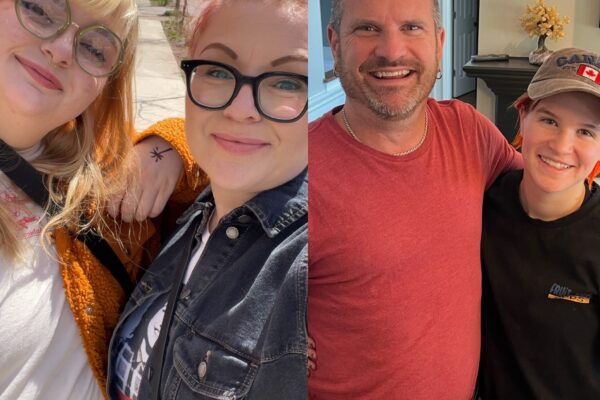This blog was written by both Megan Mueller Jensen and Randy Roosekrans, supporters and committee members of PRISM, Perficient’s Employee Resource Group for our LGBTQIA2S+ colleagues and allies.
As cisgender straight people in a professional setting, we believe it’s our responsibility to do our best to support our LGBTQIA2S+ colleagues. We are longtime allies, advocates, activists, and parents of gay kiddos, and we want to share a few things we’ve learned over the years about making our workplaces safer, friendlier, more inclusive, and more supportive for our queer colleagues. (For the rest of this writing, we’ll refer to these folx as ‘queer,’ which is an umbrella term although we recognize that not all of this applies to everyone.)
- Pronouns matter. If someone tells you their pronouns, the bare minimum we can do is respect that and use those pronouns consistently. And if you slip up in conversation, correct yourself, apologize briefly, and move on. Doing so will signal that you’re making an effort; it becomes easier with practice. If you’re not sure of someone’s pronouns, it’s ok to ask! Simply say, “I use she/her. May I ask what you use?” It’s also great to include your pronouns in your email signature, when introducing yourself, joining a meeting, or on your LinkedIn profile. It’s a positive signal that lets queer folx know that you’re a safe colleague and partner to work with, and that they’re cool being themselves around you.
- Respect and protect the privacy of your queer colleagues. Just because someone has disclosed information to you (or within PRISM events and conversations) doesn’t mean you have permission to share that with anyone outside of that original conversation. It’s ONLY the decision of queer people themselves to whom they want to come out. That information may not be safe or smart to share anywhere else. If for some reason it’s necessary to divulge details about others, make sure you get their permission first.
- Educate Yourself. Take the initiative to educate yourself about queer issues, terminology, and experiences. There are plenty of resources available online, such as articles, books, and documentaries that can help you understand the challenges faced by the queer community. While most queer folx are happy to answer questions, it can also be emotionally and intellectually exhausting to constantly be the sole source of information, or if there is an assumption that they “represent” all queer folx. A few great resources include HRC (Human Rights Campaign), GLAAD (Gay and Lesbian Alliance Against Defamation), and The Trevor Project. PRISM will also be hosting information events throughout the year that are designed to help us all be better allies.
- Speak up, even (or especially) when queer colleagues aren’t present. If someone misgenders a colleague or uses offensive terminology, intentionally or unintentionally, it’s our responsibility to correct them in a friendly but consistent way. Stand up for folx who aren’t in the room. It sets the standard for expected behavior within the team and reinforces a supportive company culture. To that end, be very mindful of “deadnaming” which is using the name a trans person had before they changed it to what they use now. It can be deeply traumatic and triggering for them to hear that name in any setting. If you happen to make that mistake, you can offer a quick, sincere apology and keep the conversation moving. If you hear a colleague using the deadname of someone who isn’t present, it’s a good opportunity for a friendly correction.
- Support queer-inclusive policies. The needs and challenges of our queer colleagues may be different and more impactful than ones we experience as cisgender folx. Don’t make them fight for equality and inclusivity alone. Make sure they know you are in their corner and follow that sentiment with action.
- Remember it’s not about YOU. As Allies, it’s our job to support, facilitate, and enable the efforts of our queer colleagues. Big decisions should be made by queer folx, and our role is to help make their lives easier, safer, and more equitable. Try your best to give input, ideas, and opinions regarding queer life when invited to do so or ask if you can add your perspective when it might be useful.
- Be open to listening and open to growth. Even with the best of intentions, we won’t always get it right. We may unintentionally say something dumb or stumble over our words. If a queer colleague corrects you or gives you input, see it as a sign of trust rather than criticism.
Understand that there are many facets to queer culture, and some norms may vary. The more exposure and practice you get in these spaces, the clearer those norms will become. The most important thing is that you approach these interactions with respect — everything else falls into place!
In closing, CONGRATULATIONS TO YOU! The fact that you are reading this article and showing an interest in this topic demonstrates your allyship, and your willingness to help make positive changes within the queer community. Thank you for being who you are! Let’s help our colleagues, clients, friends, and loved ones in the queer community feel welcome to be the best versions of themselves, too!
For more about allyship across Perficient, watch this great video produced by our PRISM ERG.
PRISM_2_English Subtitles from Perficient on Vimeo.

